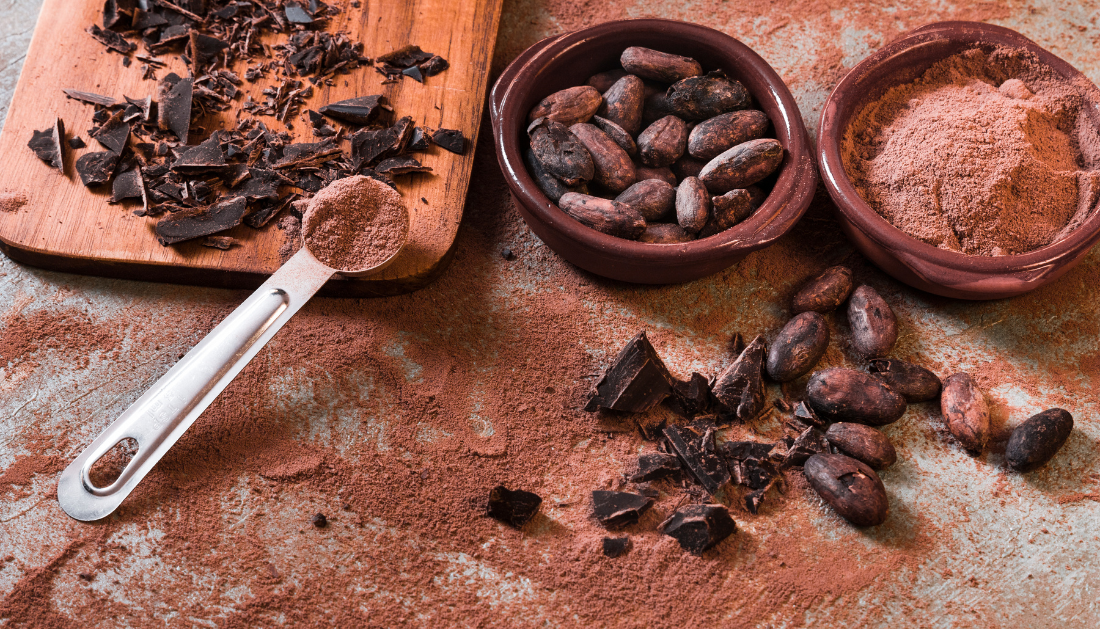

Cocoa Flavonols on combatting Stress: Stress and bad dietary choices frequently coexist, resulting in a vicious cycle that can harm cardiovascular health. Acute emotional stress has been shown to alter vascular function, increasing the risk of cardiovascular disease over time.
This problem is exacerbated when stressed people eat high-fat foods, which have been linked to delayed vascular repair. A recent study published in Food & Function looked at whether cocoa flavonols—compounds found in specific fruits, vegetables, and cocoa products—could counteract these negative effects.
The randomized, double-blind, crossover trial included 23 young, healthy adults who were served a high-fat meal (56.5 g of fat) with either high-flavonol or low-flavonol chocolate.
The participants next completed an acute stress challenge intended to simulate real-world mental stress. The researchers examined vascular and cerebral parameters before and after the stress test to assess cocoa flavonols’ preventive potential.
Stress, diet, and cardiovascular impairments
Stress has long been associated with acute and chronic cardiovascular issues. Mental stress can produce transitory endothelial dysfunction, as seen by reduced flow-mediated dilatation (FMD) of the brachial artery.
FMD assesses how well blood vessels dilate in response to increasing blood flow, which is an important sign of vascular health. A 1% decrease in FMD has been linked to a 9-13% increase in future cardiovascular events like heart attack or stroke.
Stress also alters eating behavior, generally leading to increased consumption of high-fat and sugary foods. These food choices not only increase weight gain, but they also worsen stress-related vascular dysfunction.
Fat consumption during stressful times has been demonstrated to impede endothelium healing, delaying the return to normal vascular function following a stressful incident.
Key findings from the study
Peripheral vascular benefits of flavonols
more recommended stories
 Children’s Health in the United States is Declining!
Children’s Health in the United States is Declining!Summary: A comprehensive analysis of U.S..
 Autoimmune Disorders: ADA2 as a Therapeutic Target
Autoimmune Disorders: ADA2 as a Therapeutic TargetAdenosine deaminase 2 (ADA2) has emerged.
 Is Prediabetes Reversible through Exercise?
Is Prediabetes Reversible through Exercise?150 Minutes of Weekly Exercise May.
 New Blood Cancer Model Unveils Drug Resistance
New Blood Cancer Model Unveils Drug ResistanceNew Lab Model Reveals Gene Mutation.
 Healthy Habits Slash Diverticulitis Risk in Half: Clinical Insights
Healthy Habits Slash Diverticulitis Risk in Half: Clinical InsightsHealthy Habits Slash Diverticulitis Risk in.
 Caffeine and SIDS: A New Prevention Theory
Caffeine and SIDS: A New Prevention TheoryFor the first time in decades,.
 Microbial Metabolites Reveal Health Insights
Microbial Metabolites Reveal Health InsightsThe human body is not just.
 Reelin and Cocaine Addiction: A Breakthrough Study
Reelin and Cocaine Addiction: A Breakthrough StudyA groundbreaking study from the University.
 Preeclampsia and Stroke Risk: Long-Term Effects
Preeclampsia and Stroke Risk: Long-Term EffectsPreeclampsia (PE) – a hypertensive disorder.
 Statins and Depression: No Added Benefit
Statins and Depression: No Added BenefitWhat Are Statins Used For? Statins.

Leave a Comment